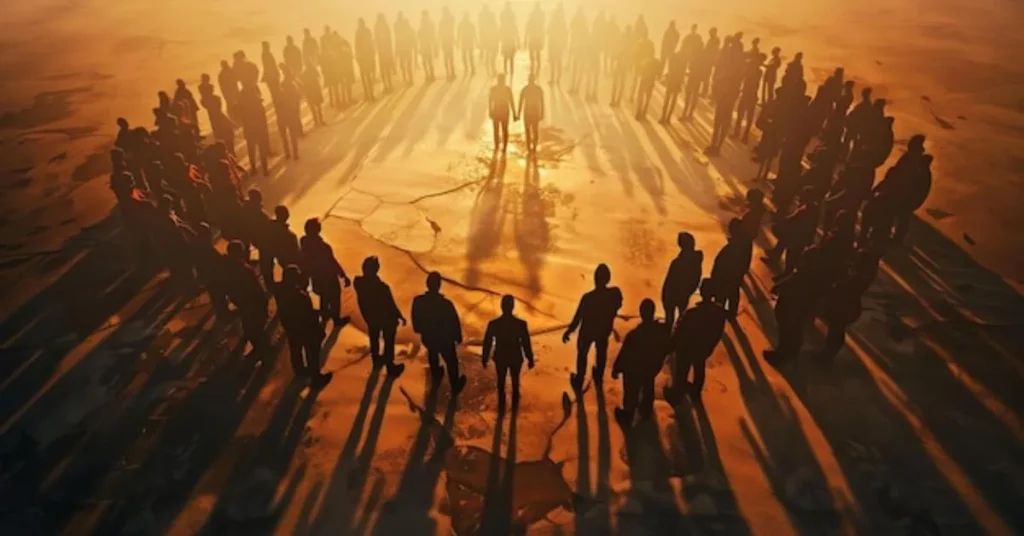Heroes are often seen as larger-than-life figures, possessing extraordinary abilities or performing grandiose acts of bravery. However, heroes can also be found in everyday life, among ordinary people who choose to act in ways that significantly impact those around them. This article explores how a common person can become a hero in society through their actions, values, and the lasting impressions they leave on their communities.
The Definition of a Hero
Historically, heroes were depicted as mythological figures or warriors who performed supernatural feats. In ancient times, heroes like Hercules and Achilles were revered for their strength and bravery. These figures set a high bar for heroism, one that seemed out of reach for the average person.
In modern times, however, the concept of a hero has evolved. Today, heroes are recognized not only for their extraordinary feats but also for their everyday actions that contribute to the well-being of others. Figures such as Mahatma Gandhi, Martin Luther King Jr., and Malala Yousafzai demonstrate that heroism can manifest in the fight for justice, equality, and education. These heroes began as ordinary individuals but rose to prominence through their dedication to a cause greater than themselves.
The Qualities of a Hero
While the paths to heroism are varied, there are common qualities that many heroes share. Understanding these traits can provide insight into how an ordinary person can become a hero.
- Courage: Heroes exhibit courage by standing up for what is right, often in the face of significant danger or adversity. Courage is not the absence of fear but the ability to act despite it. This trait allows individuals to confront injustice and take risks to protect others.
- Compassion: A hero’s actions are often driven by a deep sense of empathy and compassion. This quality enables them to connect with others’ suffering and motivates them to help alleviate it. Compassionate heroes strive to make the world a better place by showing kindness and understanding.
- Selflessness: True heroes prioritize the needs of others above their own. This selflessness can be seen in acts of charity, volunteering, or simply being there for someone in need. By putting others first, they create a positive ripple effect in their communities.
- Perseverance: Heroes often face numerous obstacles and challenges, but their perseverance allows them to keep going. Whether it’s fighting for civil rights, battling a disease, or overcoming personal hardships, their unwavering determination inspires others.
- Integrity: Heroes maintain a high standard of moral and ethical behavior. They are honest, fair, and consistent in their actions, earning the trust and respect of those around them. Integrity is the foundation upon which heroic acts are built.
Steps to Becoming a Hero
While some may argue that heroes are born, not made, the truth is that anyone can become a hero through deliberate actions and choices. Here are some steps to consider:
- Recognizing Opportunities: Heroes often emerge during times of crisis or need. By being aware of the challenges and issues within your community, you can identify opportunities to help. This could be as simple as offering assistance to a neighbor or as complex as leading a community project.
- Taking Action: Heroism is defined by actions, not intentions. Once an opportunity is recognized, it’s crucial to take action. This could involve volunteering, advocating for a cause, or providing support to those in need. The key is to move beyond thought and into tangible deeds.
- Inspiring Others: Heroes not only act but also inspire those around them. By leading by example and demonstrating the qualities of a hero, you can motivate others to join in your efforts. This collective action can amplify your impact and create a community of heroes.
Case Studies of Everyday Heroes
To illustrate how ordinary individuals can become heroes, let’s look at some real-life examples:
- Community Leaders: In many neighborhoods, individuals step up to address local issues such as crime, poverty, or environmental concerns. For instance, Alice Johnson, a retired teacher, started a community garden in her urban neighborhood to provide fresh produce and a gathering place for residents. Her initiative has not only improved the local environment but also fostered a sense of community.
- Activists: People like Greta Thunberg, who began her activism as a solitary schoolgirl striking for climate action, demonstrate that anyone can become a hero. Her unwavering dedication to addressing climate change has inspired a global movement, showing how one person’s actions can spark significant change.
- First Responders: Every day, first responders such as firefighters, paramedics, and police officers risk their lives to protect others. Their bravery and commitment exemplify heroism in its most immediate form. For example, during natural disasters, these individuals often go above and beyond their duties to save lives and provide critical support.
The Impact of Heroes on Society
Heroes play a crucial role in shaping society. Their actions can lead to meaningful change and inspire others to contribute positively.
- Creating Change: Heroes often initiate social, political, or environmental changes. Their actions can lead to new laws, reforms, and shifts in societal attitudes. For instance, Rosa Parks’ refusal to give up her seat on a bus was a pivotal moment in the Civil Rights Movement, highlighting how individual acts of courage can drive systemic change.
- Building Community: Heroes strengthen the fabric of society by building connections and fostering a sense of belonging. Their efforts to support and uplift others create resilient communities. For example, local heroes who organize food drives, neighborhood watches, or community events help to create safer and more cohesive environments.
- Encouraging Others: The actions of heroes serve as powerful examples that inspire others to follow in their footsteps. By demonstrating that it is possible to make a difference, they encourage more people to get involved and take action. This multiplier effect can lead to widespread positive change.
The Challenges and Rewards of Being a Hero
While being a hero is rewarding, it often comes with challenges and sacrifices.
- Personal Sacrifices: Heroes may face personal risks, such as physical danger, financial costs, or social ostracism. For instance, whistleblowers who expose corruption often face severe repercussions, including job loss and threats to their safety. Despite these risks, their actions are crucial for maintaining integrity and accountability.
- Public Perception: Society’s perception of heroes can be a double-edged sword. While many heroes are celebrated, others may be criticized or misunderstood. This can be especially true for those whose actions challenge the status quo. Understanding and navigating public perception is an important aspect of heroism.
- Personal Fulfillment: Despite the challenges, many heroes find deep personal fulfillment in their actions. The knowledge that they have made a positive impact on others’ lives provides a sense of purpose and satisfaction. This intrinsic reward often outweighs the difficulties faced along the way.
Conclusion
Becoming a hero does not require superhuman abilities or grand gestures. It involves recognizing opportunities to help, taking action, and inspiring others. By embodying qualities such as courage, compassion, selflessness, perseverance, and integrity, ordinary individuals can achieve extraordinary things. Heroes play a vital role in shaping society, creating change, and building stronger communities. Despite the challenges, the rewards of heroism are profound, offering personal fulfillment and the chance to make a lasting impact. As we look to the future, it is clear that the potential for heroism lies within each of us, waiting to be realized through our actions and choices.







